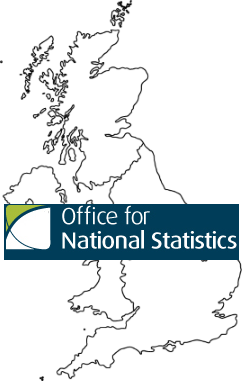EU immigration continues to fall and is at its lowest level since 2013, but ONS says new data shows error in previous estimates
The Office for National Statistics (ONS) has today published its latest migration statistics quarterly report. You can read the report here.
 The ONS estimates that net migration to the UK in the year ending March 2019 was +226,000.
The ONS estimates that net migration to the UK in the year ending March 2019 was +226,000.
In the year ending March 2019, 612,000 people moved to the UK and 385,000 people emigrated.
The ONS notes:
- EU immigration has continued to fall since 2016 and is at its lowest level since 2013. This is mainly because of a fall in immigration for work, which is now less than half the level it was at its peak in the year ending June 2016.
- Although EU immigration has fallen, there are still more EU citizens moving to the UK than leaving. However, EU8 citizens, those from the Central and Eastern European countries, do not follow this general pattern. For the past year, net migration estimates have shown more EU8 citizens leaving than arriving.
- Non-EU immigration has stabilised over the last year, after a gradual increase since 2013. However, there has been an increase in immigration for study over the last year, seen in all available data sources.
- Work remains the main reason for EU citizens moving to the UK, while study remains the main reason for non-EU citizens moving to the UK.
The ONS yesterday announced that it was downgrading its quarterly migration statistics from official 'National Statistics' to lesser 'Experimental Statistics' due to newly-discovered miscalculations.
Iain Bell, Deputy National Statistician at the ONS, explained that the use of new data sources has shown that EU migration may have been somewhat higher and non-EU migration somewhat lower than previously published.
"We have made adjustments based on the new data sources. These are giving us the best assessment yet of migration trends," Bell said. Up to now, migration statistics have mainly been based on the International Passenger Survey.
According to BBC News, the ONS' new analysis found that EU net migration was 16% higher in 2015-16 than previously estimated, while net migration from outside the EU for the same period was 13% lower due to an underestimation of the emigration of foreign students.
Iain Bell noted that the difference meant the headline trend of estimated net migration remained broadly unchanged.
You can read the ONS' lengthy analysis in full here.
The Migration Observatory at the University of Oxford said the ONS' decision to remove the 'National Statistics' quality badge from their migration statistics was a sensible move to help users understand that the figures are still not fully reliable.
Madeleine Sumption, Director of the Migration Observatory, said: "We have been pointing out for a while that something wasn't quite right in the net migration statistics, and that the comparison of EU vs. non-EU net migration did not seem plausible. This matters because for the past 9 years the UK policy debate has been fixated on a single data source, which couldn't bear the load that it was forced to carry. Whether the question is how to meet the net migration target or what to do about international students, the truth is that the data were simply not robust enough to be picked apart in such detail. The quarterly drumbeat of migration statistics that has become a feature of the UK migration debate arguably just overdramatised small changes in figures that were always quite uncertain."
Professor Jonathan Portes of the School of Politics & Economics of King's College, London said the ONS had done the right thing and the announcement represented a welcome acceptance that the current migration statistics are no longer fit for purpose.
"They have taken on board the points we have raised about the unreliability of the statistics, and have responded, not just by accepting that there was a problem, but by trying to address it using additional data sources. They have done so in an open and consultative way, despite the very real political sensitivities involved. And they have, sensibly in my view, implemented an interim solution rather than stonewalling until a new system is fully operational," Portes said.
The BBC's Danny Shaw called the ONS' admission "acutely embarrassing" and said it added to growing doubts from a number of experts about the methods it had been using.